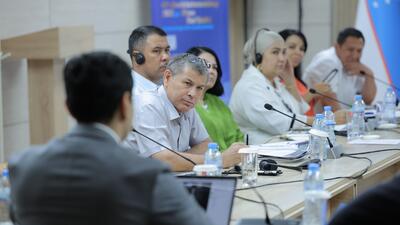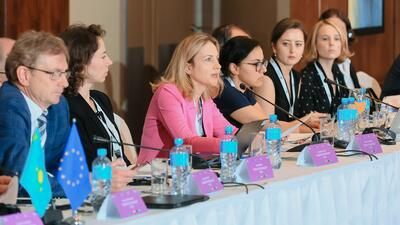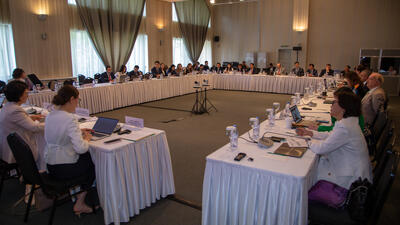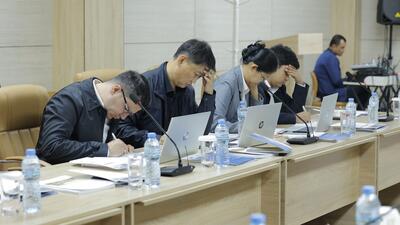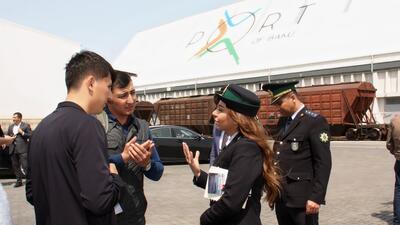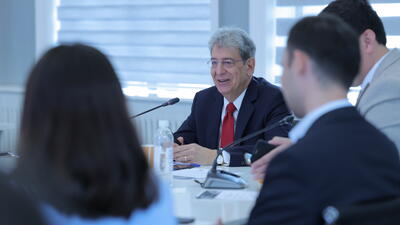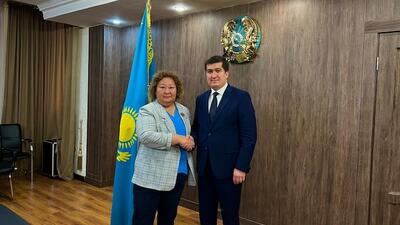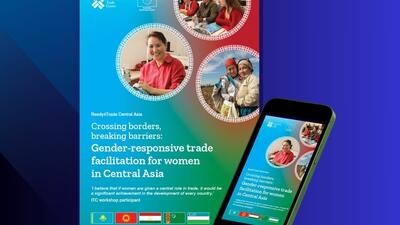
How to ease trade and increase competitiveness in Uzbekistan through compliance to the WTO trade facilitation agreement
One of the potential stumbling blocks for Uzbekistan on the road to its full-fledged World Trade Organization (WTO) Membership is ensuring its compliance with the WTO Trade Facilitation Agreement (TFA). This can be challenging as the entry into force of the TFA creates binding obligations for all WTO members to improve the transparency, predictability, fairness and efficiency of cross-border environment. But introducing the right reforms should have massive positive impacts on the Uzbek economy: complying with the TFA will boost the speed and efficiency of cross-border trade procedures while reducing cost.
To support Uzbekistan in its efforts to implement impactful trade reforms, the European Union (EU) and the International Trade Centre (ITC) have come together to hold a 5-days virtual workshop gathering the relevant national public and private stakeholders. This workshop was organized in close collaboration with national partners, in particular the Ministry of Foreign Investment and Trade (MIFT), under the umbrella of the two EU-funded projects that ITC implements in Uzbekistan and which are complementarity in supporting the country to facilitate trade:
- The "Ready4Trade - Central Asia" project, which will enhance the transparency of cross-border regulatory requirements, remove regulatory and procedural barriers to trade, strengthen businesses' capacity to comply with trade formalities and standards, and improve cross-border e-commerce.
- The "Facilitating the process of Uzbekistan's Accession to the WTO" project, which aims to strengthen and operationalize the National Trade Facilitation Committee (NFTC) and contribute with to the alignment of national legislation with the TFA among others.
Last week's workshop had a 2-prong objective:
- Help participating stakeholders better understand the TFA, its implications, and expected benefits- in particular for the private sector- and determine Uzbekistan's current level of compliance with the TFA measures.
- Enhance participants' awareness on the need and the necessary means for the set-up of a sustainable NFTC as primary trade facilitation coordination mechanism, the NFTC will play a critical role in helping the country implement the right legal changes. To that end, the State Customs Committee (SCC) has been identified as the main partner for the implementation of the trade facilitation portal under the overall coordination of the MIFT.
The workshop represented an important capacity-building exercise for the participants, as stated by Lolita Irgasheva, Chief Specialist at the Ministry of Economic Development and Poverty Reduction of the Republic of Uzbekistan: "I would like to express my deep gratitude for the assistance provided during the sessions of the workshop, which, in my opinion, were useful and understandable for all participants. The experts paid special attention to clarifying important aspects of TF Agreement."
This online workshop also highlighted the need to continuously involve the business community, including women-led enterprises, while designing the reforms and provided an opportunity for the participants to discuss the possible next steps towards the implementation of trade facilitation reforms, NTFC operationalization and the development of detailed work plan for selected measures.
The current economic context brought about by the COVID-19 pandemic makes these improvements in the legislation more pertinent and important than ever, in particular to ease the flow of critical goods and services, while helping Uzbekistan managing the pandemic's drastic economic consequences.






